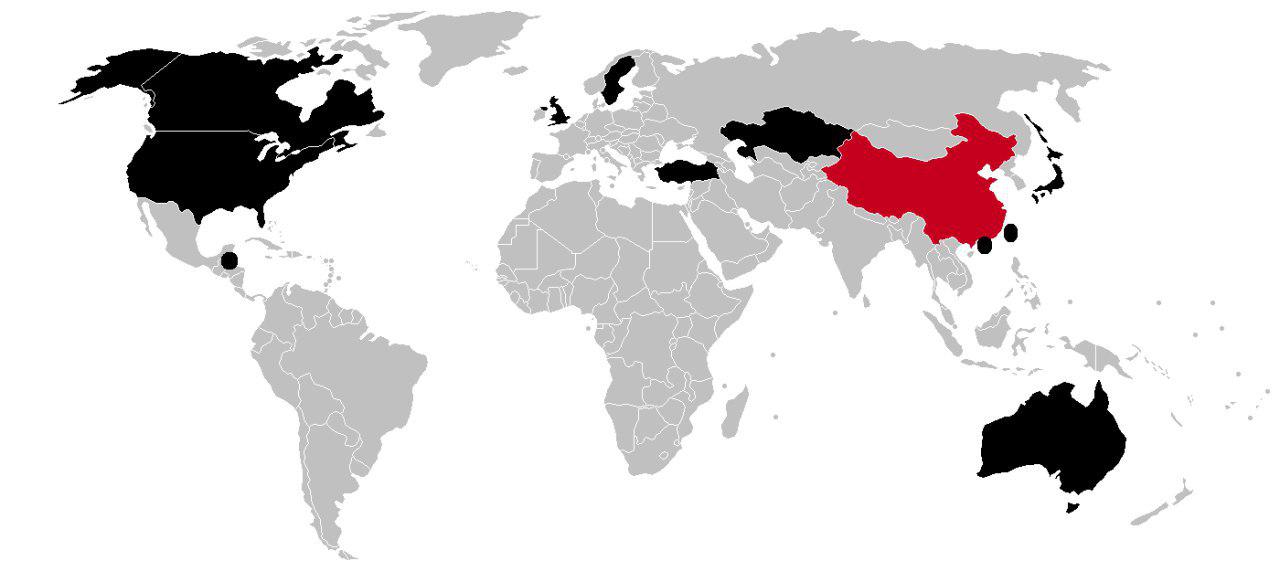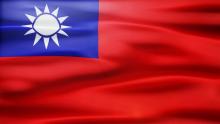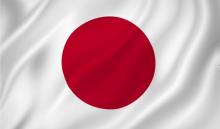Unwelcoming nation: China ramps up hostage diplomacy
[Updated 19 June 2020] Canadians Michael Kovrig and Michael Spavor's cases were moved to indictment on espionage charges on 19 June. This is being seen as retaliation for a Canadian judge ruling an argument against the extradition of the Chinese tech giant Huawei CFO Meng Wanzhou to the US was not viable a few weeks earlier. Australian citizen, Karm Gilespie, was sentenced to death for drug smuggling in early June, five years after his trial amid rising tensions between Beijing and Canberra, most recently sparked by efforts by Australia to launch an international enquiry into the origins and response to Covid-19.
In recent years, under Xi Jinping, China has increasingly used hostage diplomacy, threatening, torturing, and disappearing citizens of other countries to bully its way in the international arena.
In just the last six months citizens of at least seven countries or regions—the US, Taiwan, Japan, Turkey, Kazakhstan, Hong Kong and Belize, and including a consular official and a university professor—have been disappeared in China in what appears to be arbitrary detentions, many accused of national security crimes, others caught up in the vast network of concentration camps in Xinjiang. And these are just the high-profile ones that media report.
It has gotten so bad that countries are beginning to warn their citizens not to travel to China for danger of being detained or denied passage of exit. Something that happened on the weekend to the chairperson and president of the American Chamber of Commerce, both US citizens, in Hong Kong - and in this case not even mainland China, the pair were trying to enter Macau,a special administrative region.
On this one-year anniversary of the two Michaels' detentions, we take a look back at some of the foriegners who have gone missing in China in the past few years in what appears to be examples of the CCP's growing use of hostage diplomacy.

Countries or regions whose citizens have been detained in China in likely hostage diplomacy cases in past five years
Canada

The most blatant case of hostage diplomacy in recent years happened in December 2018, when Canada infuriated China by detaining Huawei CFO Meng Wanzhou following an extradition request from the United States. Within days, China retaliated by disappearing two Canadian citizens, former diplomat Michael Kovrig and businessman Michael Spavor, into RSDL; a move widely seen as a form of hostage diplomacy.
[UPDATE:] Both now indicted and awaiting trial, Kovrig on 'spying on state secrets and intelligence' and Kovrig with 'suspected spying secrets and illegally providing them to overseas forces'. Despite a bilateral consular access agreement, Canada has been denied access to both Michaels, in violation of that agreement, since January 2020.
With Meng’s case still pending depsite intense pressure from Beijing, the two Michaels continue to be mistreated. Both have now been formally arrested on spying charges, but neither has been able to see a lawyer or their family since they disappeared almost a year ago.
It didn’t stop there. In apparent anger at Canada’s continued refusal to release Meng, Beijing upped the jail sentence of Robert Schellenberg, a Canadian originally serving 15 years for drug smuggling to the death penalty, in a move widely seen as political, and in a procedure that, according to lawyers in China, was unprecedented. A few months later, China sentenced another Canadian Fan Wei to death for manufacturing meth, also seen as an outlier harsh judgement.
Canada has more experience than other countries with CCP hostage diplomacy. Back in 2014, Canadian couple Julia and Kevin Garratt were both disappeared into RSDL. Like the two Michaels, neither had access to a lawyer, and were kept at secret locations. Their detention was linked to Canada’s detention of a Chinese national: Su Bin, a Chinese aviation entrepreneur, who the US accused of being a spy. He was later sentenced to four years in jail in the US in 2016 for stealing military secrets.
Two brothers, Chen Zhiheng and Chen Zhiyu, naturalized Canadian citizens, were detained in April 2018 and forced to confess on Chinese state broadcaster CCTV to conspiring with exiled Chinese billionaire Guo Wengui. Guo is one of China's most wanted men and Beijing has long been trying to force him to go back to Chna. Recently leaked documents concerning China's policy of mass incarceration in Xinjiang, targetting Uighyr people, also revelead that yet another Canadian, Huseyin Celil, was detained back in 2005, in Uzbekistan, and taken back to China, and incarcerated ever since. Canada has been denied the right to visit their citizen in prison.
United States
 In August 2019, a massage therapist who lives in Arizona was taken away by Chinese police just after her plane landed in Shanghai. Friends and family are still trying to understand why Sue Jiang was arrested and accused of "provocation." Some speculate that she is fallout from the souring relationship between the US and China.
In August 2019, a massage therapist who lives in Arizona was taken away by Chinese police just after her plane landed in Shanghai. Friends and family are still trying to understand why Sue Jiang was arrested and accused of "provocation." Some speculate that she is fallout from the souring relationship between the US and China.
Americans Jacob Harlan and Alyssa Petersen were arrested at the end of September in Jiangsu province on charges of illegally moving people across borders. They had been running a business that brought foreigners to China to teach English for many years. Their arrest came just two weeks after the US arrested Chinese government official Zhongsan Liu on suspected visa fraud.
In June 2018, US citizens, brother and sister Victor and Cynthia Liu were banned from leaving China, while their mother Sandra Han, also a US citizen was detained, an apparent attempt to force their estranged father Liu Changming to go back to China to face fraud charges.
US citizen, Huang Wan, daughter-in-law to fallen security tsar Zhou Yongkang was disappeared into RSDL for 10 months in 2013. In June 2019, she was allowed to leave China, but like the Lius she has been prevented from leaving. In 2015, another American, Sandy Phan-Gillis, was disappeared and held at a secret location for half a year.
One of the earliest cases involved a US geologist Xue Feng. In 2007, he was disappeared in China for several years, tortured and then imprisoned for stealing secrets. He was finally released in 2015 and allowed to return home to the US.
Taiwan
 This autumn, fourteen months after Taiwanese academic Tsai Chin-shu went missing in China, Beijing finally admitted it had detained him on charges of endangering national security.
This autumn, fourteen months after Taiwanese academic Tsai Chin-shu went missing in China, Beijing finally admitted it had detained him on charges of endangering national security.
Just a week or so earlier, news broke that another Taiwanese citizen, Morrison Lee had also been detained in China, also on national security charges. This time it took China three weeks to admit it was holding him. He was formally arrested at the end of November with the charges now specificed as illegally providing national secrets and spying for foreign forces.
In 2017, China disappeared and convicted Taiwanese human rights defender Lee Ming-che, sentencing him to five years for state subversion.
Some 67 Taiwanese have gone missing in China since 2016 (when the independence-leaning DPP party took power). With Tsai Chin-shu detained and kept incommunicado for over a year before China admitted to having taken, it begs the question of how many of those missing 67 have also been detained, and how many of those on political grounds.
Further, in 2019 Spain extradited 260 Taiwanese citizens to mainland China; several of whom have gone missing since. Their lawyers in Spain and families in Taiwan have been unable to reach them or been informed by the Chinese authorities what has happened to them.
Interestingly, in these politically-motivated cases, Taiwanese citizens are usually charged with endangering state security, while non-Taiwanese foreigners are accused of spying.
Japan

[UPDATE] Missing since June, is Yuan Keqin a permanent resident of Japan born in China and an esteemed professor at Hokkaido University of Education. He had gone back to China in the summer to attend a family funeral. A group of researchers issued an appeal for information Christmas Eve 2019, saying it's not impossible considering China's history, that he had been detained.
In September 2019, Ministry of State Security arrested Japanese professor of history, Nobu Iwatani, who had been invited to China by the Chinese Academy of Sciences. He was released two months later after he had been forced to sign a confession that he had been collecting state secrets and following international pressure. Iwatani had previously worked for Japan's Foreign Ministry and the Defense Ministry’s National Institute for Defense Studies.
Japan’s tense relationship with China, reflecting their enduring geopolitical rivalry and territorial disputes can be seen in the number of its citizens arrested on the mainland. There are few details in the English-language press but some media have reported that nine Japanese citizens have been jailed or detained on spying charges since 2015. It is believed the number is far higher, but the Japanese government's silence on the matter, and the little exposure Japanese disappearances garner in media makes it difficult to have a fuller picture.
Australia
 In January 2019, Australian writer Yang Hengjun disappeared in China. It later emerged he had been placed in RSDL and then later arrested on spying charges. New details have emerged that he has been prevented from seeing his lawyers and is shackled by his hands and feet for interrogations. He could face the death penalty.
In January 2019, Australian writer Yang Hengjun disappeared in China. It later emerged he had been placed in RSDL and then later arrested on spying charges. New details have emerged that he has been prevented from seeing his lawyers and is shackled by his hands and feet for interrogations. He could face the death penalty.
Yang, who holds an Australian passport was a former Chinese diplomat and enraged Beijing with his pro-democracy writings. Since his detention, his wife, Yuan Xiaoliang, a Chinese national with permanent Australian residency, has been barred from leaving China,
China has been furious with Australia since 2017 for shelving an extradition treaty with Beijing. In 2018, it passed anti-foreign intervention law (widely seen as a response to Beijing’s worrying interference in Australian political affairs); banned Huawei from the country’s 5G infrastructure; and made efforts to counter Chinese expansion into the Pacific.
[UPDATE:] Karm Gilespie is one of several Australians detained and arrested in China in an anti-drug smuggling operation between 2013 and 2015. The then Prime Minister Malcolm Turbull later in 2016 and 2017, comments recently revealed shows, expressed concern that failure to ratify an extradition agreement with China would lead to several Australians in custody receiving harscher sentences, and his government apparently used this to try to force senators to vote for the extradition treaty. their tactic failed and the extraction treaty failed. Karm, who disappeared in 2013, faced trial in 2014, and has been in custody awaiting a sentence ever since. He was sentence to death on June 13.
Australian employees of mining giant Rio Tinto and Casino operator in Crown Resorts in China have also been arrested in cases that were at least partially wrapped up in political motivations.
Belize
 At the end of November 2019, China said it had arrested a Belizean called Lee Henley Hu Xiang in Guangzhou for "funding criminal activities that harmed national security." He is accused of providing funding for anti-China organisations in the US and for working with foreign forces to "meddle with Hong Kong affairs."
At the end of November 2019, China said it had arrested a Belizean called Lee Henley Hu Xiang in Guangzhou for "funding criminal activities that harmed national security." He is accused of providing funding for anti-China organisations in the US and for working with foreign forces to "meddle with Hong Kong affairs."
Belize has diplomatic relations with Taiwan.
Others
Ethnic Uighurs who are citizens of other countries have been caught up in China's network of concentration camps in Xinjiang. So far it seems there is only confirmation of Uighurs from Turkey and Kazakhstan that have been locked up without due process since 2017. In March this year, Buzzfeed reported that at least six Turkish nationals, including two children have disappeared inside China.
Several ethnic Kazakhs have gone missing in Xinjiang also, a few have been allowed to return where some have been able to go public with details on the concentration camps including Omir Bekali and Gulbahar Jalilova.
In August 2019, Simon Cheng a Hong Kong citizen and a former employee of the UK consulate in the territory went missing in China. It took almost two weeks for China to admit it had detained him. He was later released after serving 15 days Administrative Detention on what many say were dubious prostitution charges. Simon went public with his disappearance in November, describing how he was shackled, hooded, blindfolded and tortured. He was also forced to record several videoed confessions, one of which was released by China a few days after he talked to the press.
In 2015, Hong Kong resident (but UK passport holder) Lee Bo, was kidnapped by Chinese secret police in Hong Kong and disappeared into China. Lee disappeared along with four others who were involved with a publishing house that produced gossipy and politically sensitive books about China's top leaders.
One of the others, Swedish citizen Gui Minhai, was kidnapped from Thailand before being brought back to China in 2015. Gui was sentenced to 10 years in prison for "illegally providing intelligence overseas" on February 25.
[UPDATE:] Prior to his trial and sentence, China, in apparent violation of its own nationalities law and set procedure, made Gui - who was kept incommunicado at an unknown location - a Chinese citizen again, and claims that he has renounced his Swedish citizenship. Swedish government claims no communication of such, as legally mandated to be valid, has been provided. His citizenship change ensured Swedish representatives could not attend his trial.